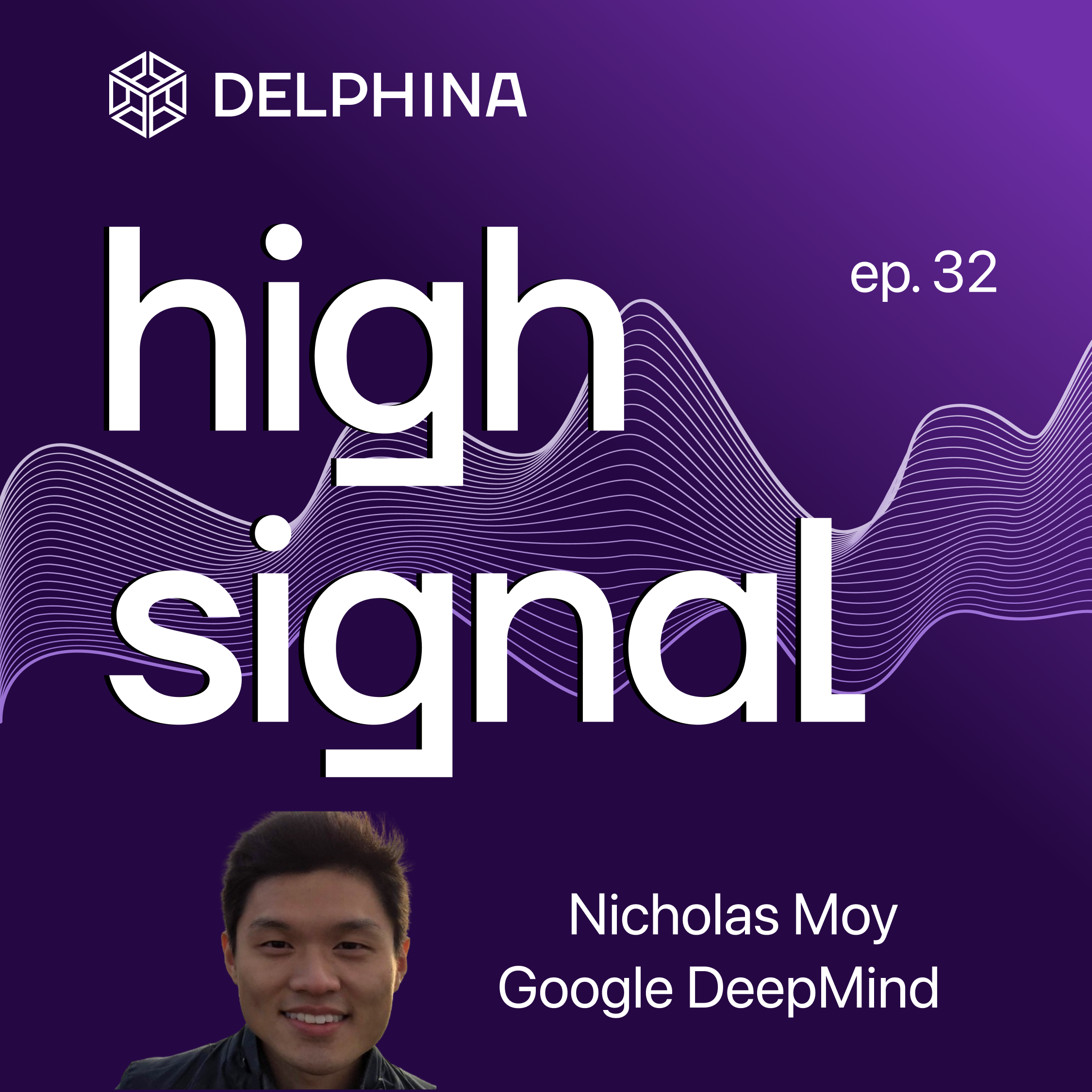Fei-Fei Li on How Human-Centered AI Actually Gets Built
%20(1).jpg)
Stanford University
Dr. Fei-Fei Li is the inaugural Sequoia Professor in the Computer Science Department at Stanford University, and a Founding Co-Director of Stanford’s Human-Centered AI Institute. She served as the Director of Stanford’s AI Lab from 2013 to 2018. And during her sabbatical from Stanford from January 2017 to September 2018, Dr. Li was Vice President at Google and Chief Scientist of AI/ML at Google Cloud.
Dr. Li has served as a Board member or advisor in various public or private companies. She is currently a Co-founder/CEO of World Labs, an AI company focusing on Spatial Intelligence and generative AI. You can read Fei-Fei's full bio here.




Delphina
Hugo Bowne-Anderson is an independent data and AI consultant with extensive experience in the tech industry. He is the host of the industry podcast Vanishing Gradients, a podcast exploring developments in data science and AI. Previously, Hugo served as Head of Developer Relations at Outerbounds and held roles at Coiled and DataCamp, where his work in data science education reached over 3 million learners. He has taught at Yale University, Cold Spring Harbor Laboratory, and conferences like SciPy and PyCon, and is a passionate advocate for democratizing data skills and open-source tools.
Key Quotes
Key Takeaways
AI is a civilizational technology.
Fei-Fei emphasizes that AI isn’t just a tool—it’s reshaping geopolitics, labor markets, and the social fabric. The stakes aren’t technical; they’re societal.
Human-centered AI starts with design, not merely technology
From smart sensors in elder care to creator tools, Fei-Fei shows how values like dignity, privacy, and agency must be embedded from the start—not patched in later.
Curiosity is the original North Star.
Tracing her path from physics to AI, Fei-Fei highlights how staying grounded in big questions—not trends—has guided her work across research, teaching, and now entrepreneurship.
Spatial intelligence is the next frontier.
Beyond language models, she argues the future lies in AI that understands and interacts with 3D space—powering new modes of creation, robotics, and real-world interfaces.
World models unlock new forms of interaction.
Flat images lack depth and structure. Fei-Fei explains why modeling space—and building foundational models for it—is key to developing interactive, controllable AI systems.
Institutions matter.
Fei-Fei calls for strong public infrastructure for AI: not just regulation, but investment in education, open research, and an innovation ecosystem that includes universities and entrepreneurs—not just incumbents.
Science, not science fiction.
Policymaking must be grounded in evidence, not hype. Fei-Fei critiques extinction rhetoric and calls for pragmatic, domain-specific regulation focused on real harms and real benefits.
AI will transform every discipline.
From climate modeling to education to public services, she sees AI as a general-purpose tool for discovery—if deployed with care, expertise, and shared intent.
You can read the full transcript here.
Timestamps
00:00 Introduction to AI as a Civilizational Technology
00:59 Interview with Fei-Fei Li: A Journey Through AI
03:18 Fei-Fei Li's Pivotal Moments in AI
12:24 Human-Centered AI: Principles and Applications
24:46 The Future of AI: Spatial Intelligence and Beyond
35:26 Challenges and Opportunities in AI Policy
46:01 Conclusion and Final Thoughts
Links From The Show
Transcript
In the spotlight: Our most popular episodes
Listen up: Our latest discussions
Hear the hottest takes on data science and AI.
Get the latest episodes in your inbox
Never miss an episode of High Signal by signing up for the Delphina newsletter.


.svg)

.png)




.png)